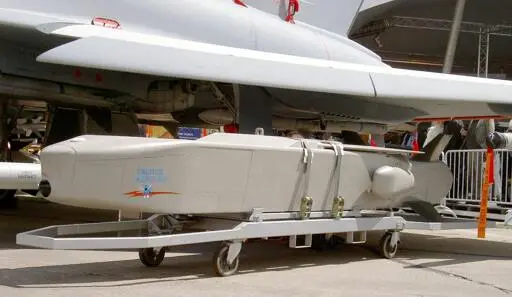Sweden’s announcement to acquire long-range weapons capable of striking deep inside Russia is a response to a worsening security climate
Sweden’s announcement to acquire long-range weapons capable of striking deep inside Russia is a response to a worsening security climate
Europe Must Develop the Power to Strike Deep — Before Russia Leaves It No Choice - Defence Matters

cross-posted from: https://mander.xyz/post/42577654
...
Sweden, to its immense credit, has acknowledged what the rest of Europe still resists saying aloud: if an adversary can strike you from thousands of kilometres away, you cannot deter them with weapons that can’t reach beyond your own borders.
...
Sweden, long admired for its cautious diplomacy and understated pragmatism, is now moving decisively onto the European security stage.
...
Stockholm’s new strategy, proposing strike systems with ranges of up to 2,000 km, is not a provocation. It is a sober, overdue recognition that Europe’s deterrent posture must modernise or collapse.
...
Predictably, some critics will accuse Sweden of “escalation”, as though investing in the ability to defend one’s territory somehow invites conflict. The argument is as old as pacifism and just as flawed.
In a world where one power routinely launches strikes 1,000 km deep into a sovereign state, the only escalatory act is to remain defenceless.
Europeans must abandon the naïve notion that Russia will be placated by weakness. If anything, it is weakness that tempts Moscow, just as it has throughout its imperial history. A Europe that cannot respond to missile attacks on its own soil — or that must beg the United States for every long-range capability — is a Europe that has ceded its sovereignty without a fight.
...
Deterrence only works if the adversary believes you have both the capability and the will to respond. Without long-range strike, Europe has neither. Sweden understands this. Its decision is not merely strategic; it is moral. A nation has a duty to defend its citizens — and defence today requires offensive reach.
...
Meanwhile, Polish members of the European Parliament (MEPs) have urged the European Union to respond firmly and jointly to Russian and Belarusian sabotage and repeated violations of EU airspace, during a debate in Strasbourg on Wednesday.
...
The discussion followed a recent explosion on a railway line in eastern Poland, which Warsaw has described as an act of Russian-backed sabotage, and a series of incursions by drones launched from Russia into the skies of several member states.
...
European Commission Vice-President Roxana Mînzatu said that strengthening Europe’s ability to react to “hybrid threats” is now a priority for the European Commission, Polish state news agency PAP reported.
The term “hybrid threats” is used in Brussels for hostile activity that mixes cyberattacks, sabotage, disinformation campaigns and military pressure. Mînzatu noted that in recent weeks drones or aircraft had violated airspace over Belgium, the Netherlands, Poland, Romania, Denmark, Estonia, Germany, Lithuania and Latvia.
“These incidents follow a pattern, they are not an accident. They are part of hybrid warfare,” she told lawmakers.
...
Former [Polish] interior minister Mariusz Kamiński of Law and Justice argued that Russia is deliberately trying to create fear and chaos and that this method has been used consistently since Soviet times.
He said Russian special services have for months been organizing “terrorist activities” on EU territory, targeting critical infrastructure such as airports, and warned that “we are one step away from the deaths of our citizens.”
Kamiński said Belarus, under the rule of Alexander Lukashenko, has become a staging ground for Russian intelligence officers and saboteurs, and called for tougher EU measures.
He also proposed that the Commission, together with the European Council, work out a procedure to compensate damage caused by sabotage using frozen Russian assets that were blocked after the full-scale invasion of Ukraine.
...
Krzysztof Śmiszek from the Left alliance cited an estimate by Poland’s digital affairs minister Krzysztof Gawkowski that cyberattacks in Poland, including those targeting critical infrastructure, could reach 100,000 this year.
Śmiszek accused the far right in Europe of acting in the Kremlin’s interests, saying that “the Kremlin, as always, uses the mindless and ‘useful idiots,’” using a phrase often applied to people seen as advancing Russia’s agenda inside Western politics.
...
On Thursday, on the sidelines of the European Parliament’s plenary session in Strasbourg, the Committee on Security and Defence (SEDE) is due to meet behind closed doors.
...